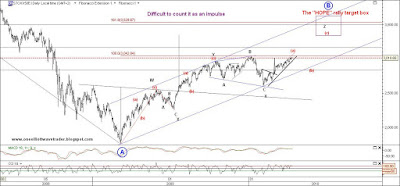Trading Psychology
Covers trading psychology and how the optimum mindset for Forex traders involves having a trade plan and managing risk.
For many Forex traders, their trading psychology and mindset will ultimately determine the success of their forex trading business. In fact, learning how to manage your emotions while trading and training your responses to various trading situations is a very important aspect of maturing as a trader. Many rogue traders that caused huge bank Forex losses failed to manage their trading psychology well.
The primary emotions that tend arise when trading Forex includes fear, greed and hope.
Secondary emotional responses might include anger, frustration and elation. No matter what emotion arises for you when trading, it makes sense to have an objective trade plan worked out in advance that helps you manage them for optimal success.
Having a Trade Plan
Because of the volatility often seen in the Forex market, a trader without a sound money management component to their trading plan could be likened to a skydiver without a parachute. In the event of a string of losing trades, the trader’s account balance will drop much like the ill-fated skydiver without the benefit of a parachute to break the fall.
A large percentage of people that begin trading in the forex market fail mainly because of lack of discipline and poor money management. Without knowing how to deal with losing trades, many novice traders start “chasing money out the door” by committing a range of typical money management mistakes. Eventually they can end up losing a lot of money, perhaps even their whole trading account.
Nevertheless, having a good trading plan only comprises one part of the overall trading game. Knowing what to do when the going gets tough will eventually distinguish a successful trader from the other high percentage of unsuccessful forex market participants.
Managing Forex Trading Risk Effectively
Generally, Forex traders will risk between 1% and 5% of their trading account’s value on any given trade. Also, by always risking the same percentage, the trader’s trade size will tend to grow along with the equity in their account.
In order to effectively trade with stops, the trader would do well to examine technical indicators and other trading signals and to place stop-loss orders accordingly, thereby maintaining a more objective mindset when trading.
Furthermore, trading involves making both profitable and unprofitable trades, and knowing how to manage emotions that arises from the unprofitable trades tends to matter more. When trading profitably, the money tends to take care of itself, but when a trader encounters a series of losing trades, having an objective exit strategy and knowing when not to trade could save the account from ruin.
Basically, having an optimal trading mindset that includes sound money management principles is not only essential for Forex traders to learn and practice, but can benefit just about any business. In fact, even people that do not trade at all can often profit considerably from learning how to manage their money better.
Once that important element gets taken care of, the next thing to do involves finding the best forex broker that suits your needs.






